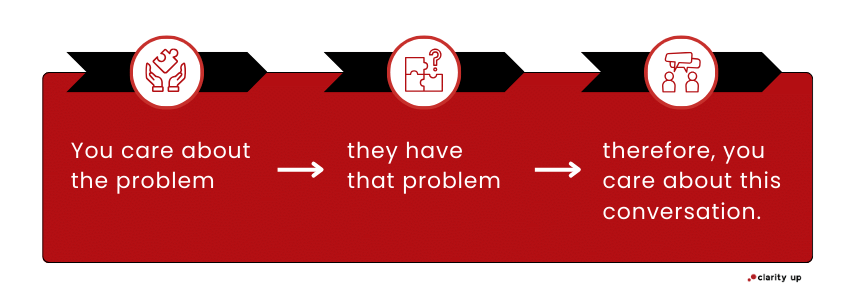How to network when you just don't care
Description: This article redefines professional networking as a meaningful, inclusive practice. Learn how to grow your network genuinely by focusing on problems, not transactions. Discover how curiosity and authentic engagement can transform your networking experience.
"I don't like networking. I hate pretending to care about other people's businesses."
Welp, that's pretty much the most direct response I could have received.
I was consulting for a client who is new to the world of speaking. We were building the foundation for her new business when we came to the dreaded 'n' word: networking.
She, like so many, felt that networking was a sleazy activity engaged mostly by white men in business suits who spend the day fake smiling, shaking hands, and pretending to care about each other while handing out business cards in a desperate attempt to win business.
And sure, if that's what you think networking is - I wouldn't want to do it either.
Why Networking at All?
Fortunately, networking doesn't have to be like that. And that's good, because networking is incredibly valuable.
Tim Sanders coined the phrase, "Your network is your net worth." But what does that really mean? Metcalfe's Law states that the value of a network grows proportionally with the square of its users. Simply put, a network of 10 has a potential value 100 times greater than a network of 1.
And according to Dunbar's Number, the average person maintains a stable social relationship with about 150 people. That means for each person you connect with, you increase your 2nd degree connections by up to 150 people.
In other words, the more people who know you, the more leverage you have.* Networking is exponential.
(*Well, that's not quite true. The more people who know you AND can clearly articulate what you do, who it's for, and why it matters, the more leverage you have.)
Let's imagine a world where instead of sleazy and self-serving, networking is fun, fruitful, and fulfilling.
Let's Redefine Networking
In my world, networking is the process of connecting with people for the purpose of giving and receiving support on pressing problems.
It doesn't exclusively take place in formal rooms at events that include 'networking' in the title. Sure, it can! But networking can happen anywhere, at the coffee shop, grocery store, or your friend's kid's 4th birthday party.
Anytime you talk to someone long enough for them to ask, "What do you do?" - you're networking.
You Don't Have to Pretend to Care
But what happens when you ask someone what they do, and their answer doesn't interest you. Assume, for the sake of argument, that they are a librarian, and you're just not a book person.
Should you 'pretend to care' in order to maximize the chance that they will introduce you to a new prospect for your business from their network?
No.
And for the folks out there doing it - we can tell. A mentor once told me, "People have a built-in bullshit detector." Don't fake it. Don't pretend.
There's something better than you can do: get curious about the problems or obstacles they face.
Donald Miller likes to say, "As soon as you stop talking about people's problems, they stop listening." The less you focus on your brilliant solution (product, service, non-profit, etc.) and the more you focus on your ideal customer's problems, the better you will engage with the marketplace.
Example Conversation
So, let's say you're a Supply Chain Optimization Specialist. Your primary focus is on making manufacturing and distribution more efficient.
When the librarian tells you about their role, your initial thought might be, "Well, this is irrelevant to my work. I don't like books. I'm already bored, and I don't care."
However, instead of dismissing the interaction, you might ask, "What's the most challenging aspect of managing the inflow and outflow of books and digital resources at your library?"
You've now opened a topic that shares conceptual space with your own specialty: resource management and distribution.
The librarian might talk about the challenges of managing late returns, how to efficiently cycle out old books to make room for new ones, or even how they handle the distribution of digital codes for e-books.
These are problems that you deal with, although in a very different context. The most important thing is that because you care deeply about the problems you solve, you can genuinely enjoying engaging with a librarian.
You care about the problem ➝ they have that problem ➝ therefore, you care about this conversation.
Interactions > Transactions
If you've ever dismissed networking as a self-serving, meaningless exercise - I get it. But let's consider a world where networking isn't built on transactions, but interactions.
And at the heart of all meaningful interactions is making each other feel heard, understood, and valued. We do that through perspective-taking and creating shared spaces.
Plus, networking in this way opens us to a new world of perspectives and worldviews that we might not otherwise hear or encounter. No longer will networking be reserved for white men in business suits. It's for everyone, and in any situation.
You don't have to love what someone does to care about them. You just have to be curious about the problems they face, and the lens through which they see the world. That curiosity can turn what feels like a mundane conversation into a story.
In a world where our problems are interconnected, so too are our solutions.
By networking authentically, not only do you enrich your professional life, but you also create a ripple effect, making the broader network a more meaningful space for everyone involved. And that's a value that no one can put a price on.
Oh, and if you're planning to hand out business cards, be sure to avoid this huge business card design mistake.




